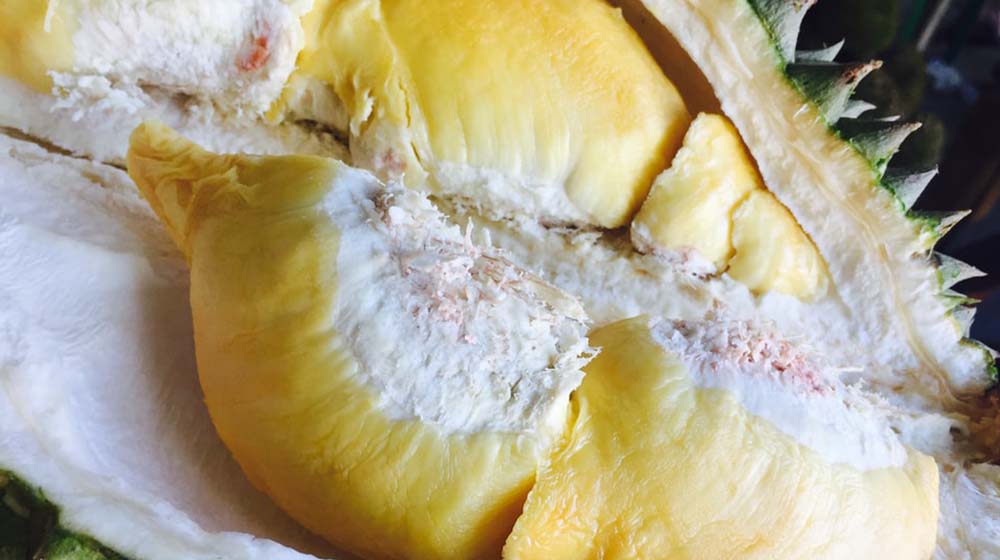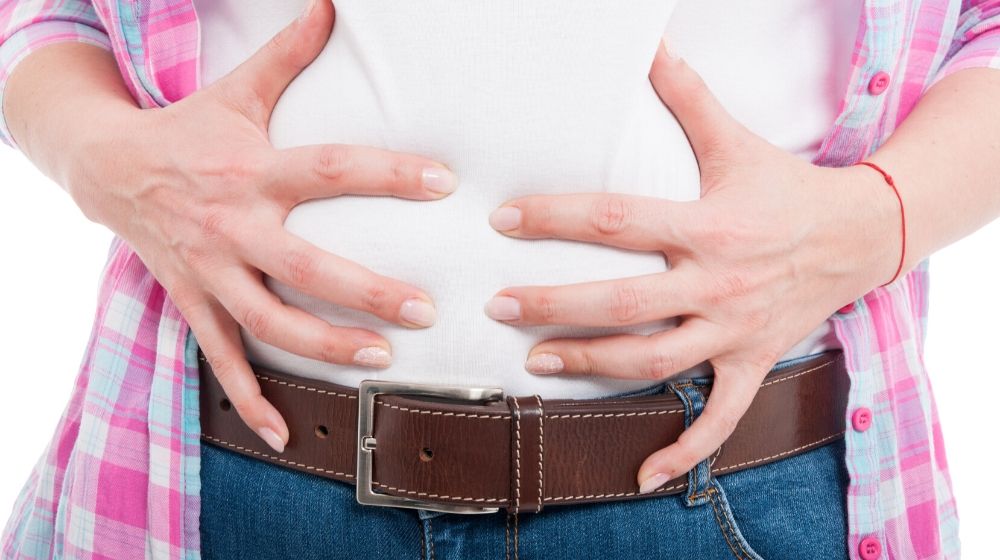Avoiding foods that cause bloating can prevent the discomfort of this common ailment. Read more to find out more about the foods that cause bloating.
RELATED: Why Am I Gaining Weight: 7 Underlying Causes
In this article:
- What Is Bloating?
- FODMAPs And Bloating
- Legumes Cause Bloating
- Bloating Caused By Grains And Cereals
- Fruits And Veggies That Cause Bloating
- Food Intolerance
- Beverages And Bloating
- What To Do About Bloating
Foods That Cause A Bloated Stomach
What Is Bloating?
Bloating is described as an uncomfortable, swollen feeling in the abdomen. A bloated stomach not only causes pain and discomfort but also makes the abdomen appear bigger.
The leading cause of bloating can be hard to pinpoint, but it happens as a result of gas build-up in the gastrointestinal tract. Certain foods, swallowing air, and eating too quickly contributes to bloating and distention.
Bloating is common and usually not severe, but in some cases, it may be a symptom of an underlying medical condition like irritable bowel syndrome (IBS), ulcerative colitis, or bacteria overgrowth (SIBO).
Aside from physical illness and eating habits, psychological factors like depression and anxiety may cause bloating.
Bloating usually doesn’t require medical attention. Consult your doctor if bloating is accommodated by:
- Fever
- Vomiting
- Prolonged abdominal pain
- Unexplained weight loss
- Bloody stool or dark tarry looking stool
FODMAPs And Bloating
Fermentable oligosaccharides disaccharides monosaccharides and polyols (FODMAPs) are short-chain carbohydrates that are poorly absorbed in the gut.
These carbs resist digestion and get fermented once it reaches the lower intestines. The gut bacteria that feed on FODMAPs produce hydrogen gas that causes bloating, cramps, and other digestive issues.
FODMAPs contain:
- Galactans are found in a legumes
- Lactose is found in dairy products
- Fructans are a type of soluble fiber
- Fructose is the sugar found in many fruits and vegetables
- Polyols are often found in artificial sweeteners
A low-FODMAP diet may be beneficial to individuals with a sensitivity to these types of carbohydrates.
Legumes Cause Bloating

Legumes, especially beans, have a reputation for causing gas and bloating. In addition to fiber, beans contain raffinose, a complex sugar that can be difficult to digest.
Not all legumes cause excessive bloating. Mung beans, lentils, and black-eyed peas are more comfortable to digest and produce less gas.
Eating small amounts of beans daily may gradually increase beneficial bacteria in the gut and reduce bloating.
Soaking beans before cooking can also reduce the amount of gas produced during digestion.
Bloating Caused By Grains And Cereals
Whole grains are full of nutrients but can cause digestive discomfort and bloating. Grains like wheat, rye, and barley contain fiber and raffinose, which increases gas production.
Gluten found in some grains may cause individuals with gluten-sensitivity to experience bloating.
Gluten-free grains like wild rice, oats, and sorghum are healthy options that may reduce bloating. Wheat flour can be replaced with almond or coconut flours.
Another alternative to natural grains are pseudocereals like buckwheat and quinoa. Pseudocereals come from non-grass plants and can be consumed in the same way as other cereals.
RELATED: Amazing Juicing For Weight Loss: 7 Juices That Help Burn Fat
Fruits And Veggies That Cause Bloating

Fruits and vegetables contain many gas-causing compounds, but some cause more bloating than others.
Pears
Pears cause gas because of their fructose and fiber contents. Sorbitol found in pears can significantly increase bloating as well.
Replace pears with fruits that cause less bloating like blueberries, grapes, and citrus fruits.
Cooked pears are more comfortable to digest, so consider baking or steaming pears before consumption.
Cruciferous Vegetables
Cruciferous vegetables are praised for their health benefits. They’re abundant in vitamins and contain iron, potassium, and other minerals.
Thanks to FOMAPs, some cruciferous vegetables can lead to bloating and abdominal discomfort. Like legumes, cruciferous vegetables contain raffinose, making them difficult to break down.
Cruciferous veggies that cause bloating include:
- Cauliflower
- Broccoli
- Brussels sprouts
- Cabbage
- Turnips
Once cooked, these veggies are easier to digest.
Onions and Garlic
Fructans are the main gas-causing culprits when it comes to onions and garlic. An allergy to onions or garlic can increase the likelihood of bloating and other digestive issues.
Onions have a high fructose content as well, making them more likely to cause a bloated stomach.
Substitute onions with leeks, celery, or fennel or try onion-infused oil to add flavor to dishes.
Garlic has a unique flavor that can be difficult to replace. Try experimenting with different herbs and spices to complement a dish rather than replicate the taste of garlic.
Food Intolerance
Food sensitivity and intolerance affects an estimated 20% of the world’s population and seems to be on the rise. Though not life-threatening, food intolerance can affect the quality of life.
Symptoms vary but often include a wide range of digestive problems.
Lactose intolerance is one of the most common food intolerances associated with bloating. Gluten, yeast, and fructose sensitivity can also cause bloating.
Beverages And Bloating

Some alcoholic beverages, like beer, irritate the gut. The yeast and fermentable carbohydrates in beer contribute to gas and bloating.
It’s best to avoid alcohol, but spirits and wines should cause less bloating.
The gas in carbonated drinks ends up in the digestive tract. Regularly consuming fizzy drinks like soda, results in a bloated stomach.
Fruit juices and teas are better choices when it comes to quenching your thirst.
What To Do About Bloating
Since bloating is usually caused by eating habits, changing your diet may help.
Following a low-FOMAPs diet is one of the options if you are prone to bloating. This and other types of elimination diets can help pinpoint the foods that cause bloating.
Changing the way you eat may help. Eat slower and smaller portions and avoid drinking with straws.
In some cases, digestive enzymes, probiotics, and charcoal may reduce bloating.
Mild activity and sitting or standing in an upright position can also bring some relief.
To summarize, bloating affects many people and can negatively impact daily life. Lifestyle changes can minimize bloating. Cooking or soaking gas-causing foods or trying alternative foods may reduce bloating.
Do you know of more ways to reduce bloating? Tell us in the comments section!
Up Next:
- How Lack Of Sleep Affects Metabolism And Causes Weight Gain
- How To Lose Weight In A Month In A Manageable Way
- How To Stick To A Diet For Better Weight Loss Resolutions
/
5
(
3
votes
)
The post Foods That Cause Bloating (And What To Do About It) appeared first on Liv Health.


